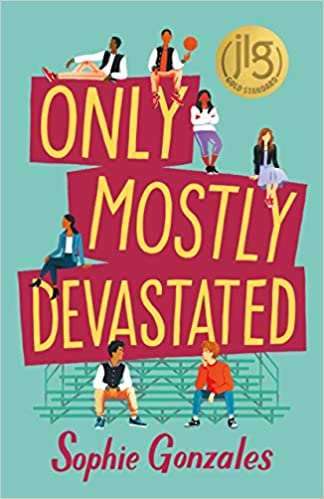[Editor’s note: #OwnVoices is a term coined by the writer Corinne Duyvis, and refers to an author from a marginalized or under-represented group writing about their own experiences/from their own perspective.]
By rcade: Last year, Dark Matter Zine managing editor Nalini Haynes wrote an irate personal essay stating that someone is only qualified to call themselves an ownvoices author if they are always public about that identity:
Various identities are, like disability, cherry picked by authors. These authors feel those identities benefit them on occasion but when those identities are likely to cause inconvenience — or to make the authors suffer discrimination — then those same authors conceal those identities.
They want to claim to be an “own voices” author and they want to disavow that identity when owning that identity does not suit them. I use disability as an example, but this equally applies to being LGBTQIA (aka “queer”), Muslim, a person of color, and so on. If you’re “passing” as straight, or areligious or a conforming religion, or white, then you don’t get the full technicolor violent experience of the identity you’re claiming. You are NOT an “own voices” author if you don’t own that identity ALL THE DAMNED TIME.
Sharing experiences of the hardships she’s faced in her life because of disability, Haynes suggested some ownvoices authors are intentionally deceiving readers:
Not trying to own an identity is an HONEST choice. When an author declares “this topic is off limits” and “I do NOT want to own this identity”, I can work openly and honestly with this author in a podcast or review. I know where I stand, where the boundaries lie.
When an author says “I own this identity but IT IS A SECRET” it raises issues. You’re trying to wink at the audience, you’re playing a shell game. You are being dishonest.
… I will not be party to lies and deception.
Today, the young adult author Sophie Gonzales posted a Twitter thread stating that she was outed on Dark Matter Zine in a podcast and again in a book review, leading to a “very unpleasant interaction” that included Haynes making a complaint to her publisher, and the essay about authors being deceptive was published days after these events. (Gonzales names Dark Matter Zine but not Haynes, calling her “the author” instead.)

When she was outed in the podcast, Gonzales wrote in the chatroom, “Only some close friends know I have this marginalization.” Then Dark Matter Zine reviewed her novel Only Mostly Devastated and mentioned it again:
A few days later, the magazine ran a review of OMD and tagged me. In it, the author disclosed my marginalized identity, one which I’d never discussed in public at that point. I had a stab of panic, but figured, again, no stress, no one’s gonna see this before it’s cleared up. So I contacted the magazine editor thanking them for the review, but requesting they please remove the line about my identity as this isn’t public information.
She said that Haynes became angry and told her “if she’d known I wasn’t ownvoices she would’ve never approached me.”
Gonzales continued her recounting, “I stated that I *was* an ownvoices author, but some people in my life didn’t know. (I’d also never used ownvoices while advertising my books at this stage, as the only ownvoices book I’d written was POP, which was a year off publication still).”
Things escalated quickly, Gonzales said:
She said she’d been advised “not to work with my minority group again”. She then said her future policy was going to be if authors don’t disclose that their identity isn’t to be made public before a podcast or review is made, she isn’t removing the information.
(Remembering, again, I was never at any point asked about my identity. Do people often pre-emptively share secrets about themselves to strangers so that they can then ask the stranger to not disclose this secret to the public?).
Six months later, Gonzales used a post on Goodreads about her new book Perfect on Paper to go public as ownvoices on her own terms:
I’ve been writing bisexual characters for many years, but I’d always written them dating someone who shared their gender. Then, in OMD I wrote a bi character whose story culminated in a romance with someone of a different gender, and I suddenly received push back. I started hearing that I’d done something wrong, and I won’t list the specific things said here, because they’re just hurtful, but the reasons given boiled down to this: “a bi person who is in a relationship with a different gender is not correct queer rep”. …
I hope that this ownvoices book is seen for what it is, and that the fear in the pit of my stomach that it will be pushed out for not being quite queer enough will turn out to be just that. Only fear.
The fantasy novelist Foz Meadows, who like Haynes and Gonzales is Australian, offered a gobsmacked Twitter thread about the situation:
If you’re not willing to risk losing your job or your housing, or if you’re not prepared to risk PHYSICAL VIOLENCE, then you cannot claim the identity that sees these things threatened, because you’re not paincore enough” is a fucking HELL of a take.
